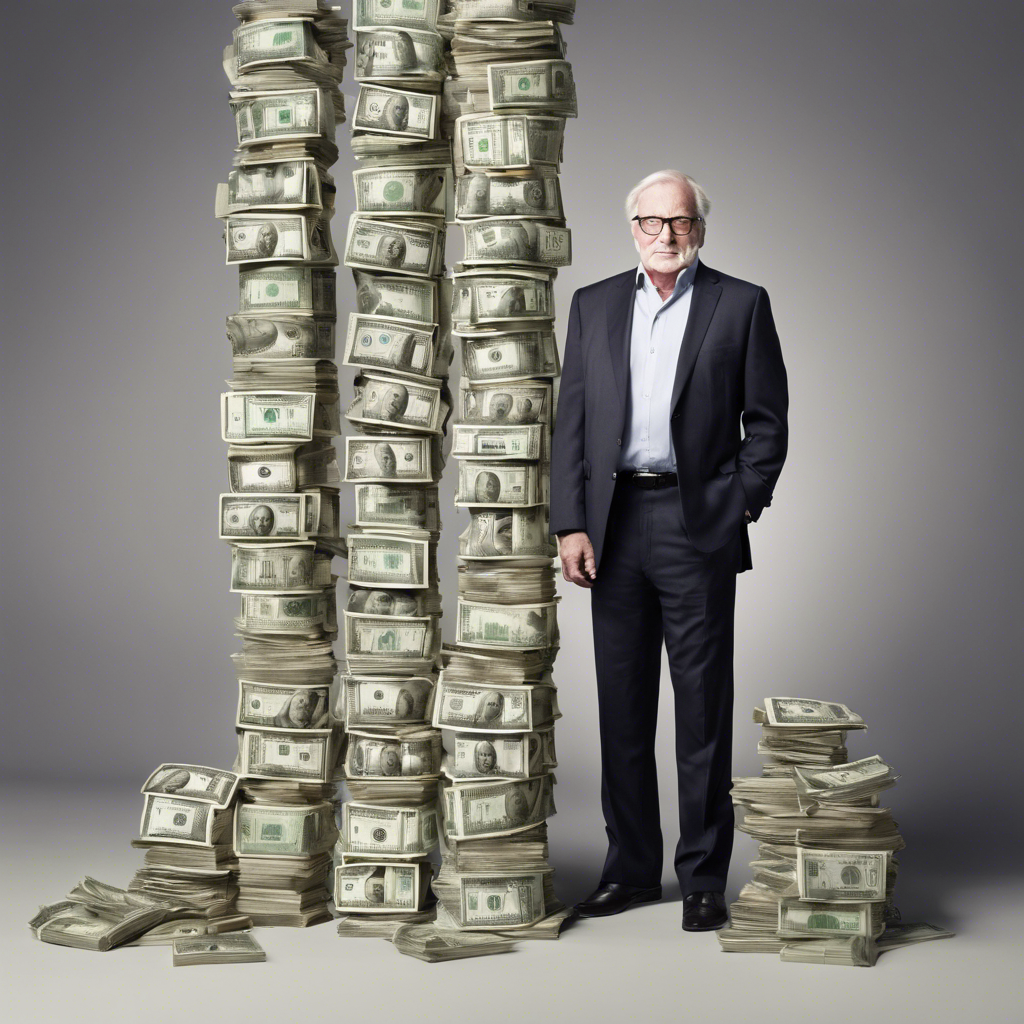The Rise of Inherited Wealth: A Shift in the Landscape of Billionaires

Experts attribute the surge in inherited wealth to declining opportunities for entrepreneurship
In a significant shift, billionaires who inherited their wealth outpaced self-made billionaires for the first time in a decade. This change in the landscape of wealth accumulation is a result of deteriorating conditions for building wealth through entrepreneurship, according to experts. The growing divergence between inherited wealth and limited opportunities for the middle class is expected to continue, further exacerbating income inequality. This article examines the factors contributing to this trend and its implications for economic mobility and wealth distribution.
Inherited Wealth Surpasses Entrepreneurship
According to a report from UBS, the world’s billionaires accumulated more wealth through inheritance than entrepreneurship in 2023. This marked the first time in nine years of research that inherited wealth surpassed self-made wealth. While not all individuals who inherit wealth are nepo babies, many of them leverage their resources to scale family businesses or venture into new endeavors. This advantage gives them a significant head start compared to those with less wealth. Simultaneously, economists note that middle-class workers face the most challenging conditions in a century for building wealth.
Declining Economic Opportunities for the Middle Class
The decline in economic opportunities for the middle class is evident in stagnant wages and reduced upward mobility. Data from Harvard University’s Opportunity Insights reveals that the percentage of children earning more than their parents has plummeted. In 1940, 90% of children went on to earn more than their parents, but this figure dropped to only 50% in the 1980s. Recent research suggests that economic mobility rates continue to decline, with the number of children surpassing their parents’ income reaching its lowest level since the early 1900s.
Growing Wealth Disparity
While economic opportunities for the middle class dwindle, the wealthiest segment of the population experiences the opposite trend. A study by Opportunity Insights, citing data from the Economic Policy Institute, reveals that salaries for the top 0.1% of earners grew at the fastest pace in 2021, while the wages of the bottom 90% declined. This deepening inequality further widens the wealth gap and hampers economic mobility for those striving to build their fortunes.
Deteriorating Conditions for Entrepreneurship
Experts argue that higher interest rates and other macroeconomic factors have contributed to the decline in entrepreneurial wealth-building opportunities. Max Kunkel, the chief investment officer of UBS’s global wealth management division, highlights the impact of these conditions on the number of self-made billionaires. Forbes’ billionaires list shows that only 150 billionaires were created in 2023, down from 236 in the previous year. Kunkel predicts that interest rates will remain high for an extended period, making it even more challenging for entrepreneurs to accumulate wealth.
The Future of Wealth Transfer
As the trend of inherited wealth continues to gain momentum, the number of billionaire heirs and heiresses is expected to grow. Kunkel predicts that the “Great Wealth Transfer” will span the next 20 to 30 years, with approximately 1,000 billionaire boomers passing down $5.2 trillion to their successors. This ongoing transfer of wealth is likely to perpetuate the concentration of wealth among a select few, further widening the wealth gap.
Conclusion:
The rise of inherited wealth and the decline of entrepreneurship as a pathway to riches highlight the deepening inequality and limited economic mobility in today’s society. As economic opportunities for the middle class diminish, the wealthy elite continue to amass wealth through inheritance. The implications of this trend are far-reaching, with experts warning that the gap between the haves and have-nots may continue to widen. Efforts to restore economic opportunity and address income inequality will be crucial in creating a more equitable society.

